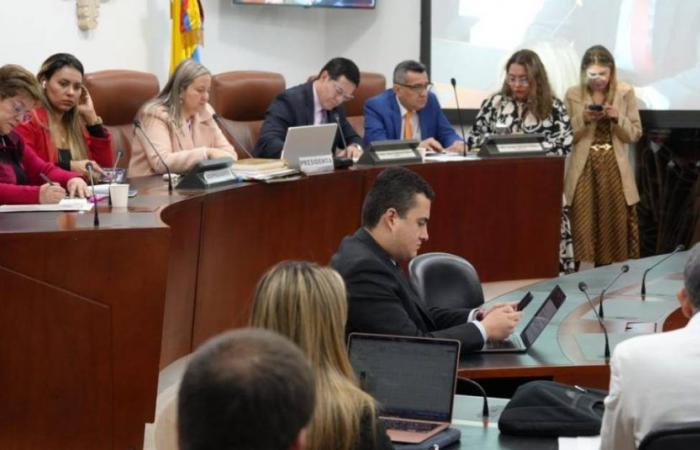
The Alliance of associations and unions of Colombia, known as Aliadas, expressed its firm rejection of the initiative of the National Government to modify the labor law through the issuance of regulatory decrees.
According to Aliadas, through a statement, This government initiative represents a clear violation of the principles of democracy and a violation of the Political Constitutionsince article 189 (paragraph 11) empowers the president to “exercise regulatory power, through the issuance of decrees, resolutions and orders necessary for the complete execution of the laws.”
Read also: Labor reform is about to pass in the Chamber, but more than 20 articles were eliminated
For this reason, the union reiterated that This article does not empower the president to issue laws, but rather to regulate existing ones. and to the extent that they so establish.
“The labor decrees They intend to substantially modify the current law on labor mattersincluding aspects such as collective labor negotiation, the exercise of the right to strike and the solution to collective conflicts,” the letter reads.
Therefore, Aliadas warned that these issues, because they are legal, They cannot be processed via regulatory decree, under penalty of being unconstitutional and illegal.but require modification of the law through the Congress of the Republic.
Additionally: Government seeks to revive, by decree, overturned articles of the labor reform
“It is absolutely contradictory and undemocratic. that the National Government has presented to Congress its labor reform project for the next legislature, having agreed on a text in which the issues that are now intended to be regulated were excluded using regulatory powers that the executive clearly does not have“, warned the union of guilds.
The Alliance of unions and associations also criticized the Government’s justification that the reform is based on recommendations and commitments made by previous governments with the ILO, the OECD and the FTAs with the United States and Canada.
Likewise, they reiterated that the government initiative seeks to substantially modify the current law on labor matters. For example, heThe intended modification in terms of collective rights, such as collective labor bargaining, the exercise of the right to strike and the solution to collective conflicts.
They also mentioned the case of the strike in essential public services which, as expressly stated in article 56 of the Constitution, are exclusively a legislative matter. And also what is related to the regulation of intermediation and outsourcing, which according to the Council of State is a matter exclusively for the legislature.
Read here: Government would seek to implement sunk articles of the Labor Reform by decree
Therefore, Aliadas argued that these commitments are being fulfilled permanently with concrete work plans and in some cases they are not binding, nor are they part of the domestic legislation because the elements of the constitutional block do not exist. such as those with commercial impact that arise indirectly from FTAs.
In addition to the legal defects, Aliadas warned that The labor reform could have important negative consequences for the labor market and business activity.
Find out: “The labor reform is the best possible anti-pension reform”: José Manuel Restrepo
Possible negative impacts include, for example, the affecting the continuity, quality and coverage of essential public services due to restrictions on the right to strike. Also impact on the excessive expansion of the scope and effects of collective agreements, which could generate widespread and widespread cessations of activities.
“Direct increase in extralegal or conventional labor costs for SMEs, which could lead to layoffs, restructuring and closures… Limitation and persecution of the activity of independent professionals due to illegal outsourcing… Blow to business freedom and free competition,” the statement concluded.
Therefore, Allies demanded the National Government to desist from its intention to issue unconstitutional labor decrees and that, in its place, open spaces for dialogue and agreement for the discussion and analysis of the labor reform through the Congress of the Republic.
Also requested the Government to honor the agreements that were advanced in the Seventh Commission of the Chamber of Representatives on the contents of the project for the next legislature.
Keep reading: The labor reform changed, but it still does not convince the unions





